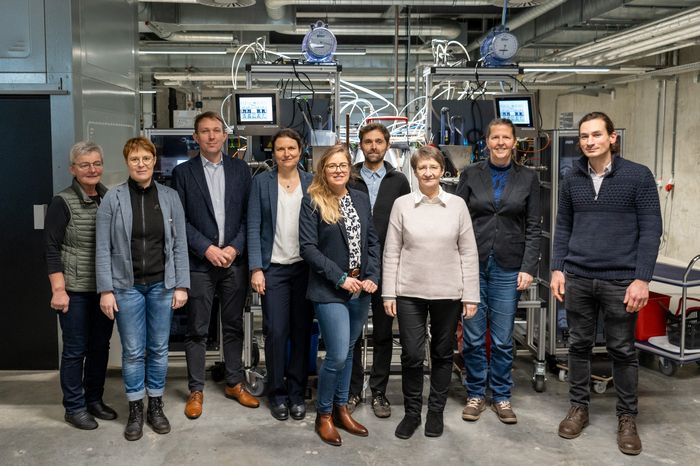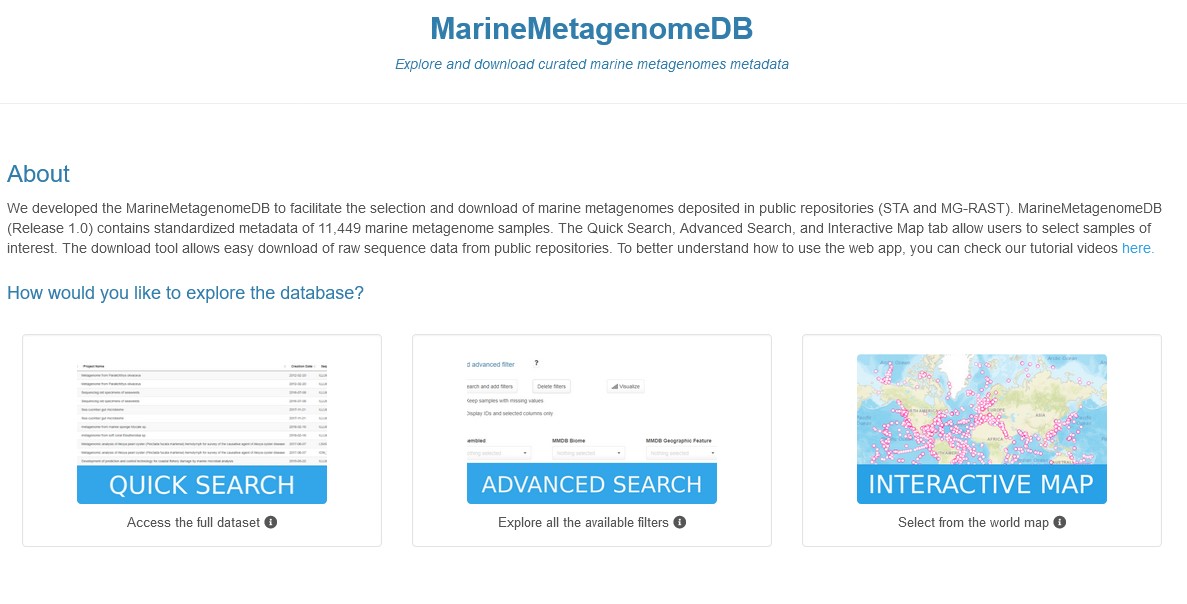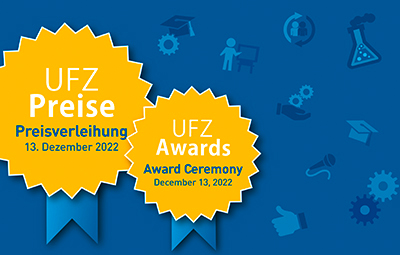Transfer News
January – March 2023
Chemicals for the bio-economy from agro-industrial residues
 How can chemicals for the bio-economy be produced on a large scale from regional residues? A research team from the Helmholtz Centre for Environmental Research (UFZ) and the German Biomass Research Centre (DBFZ) is investigating this question and, together with industrial partners, is bringing the production of caproic and caprylic acid from agro-industrial residues to pilot scale.
How can chemicals for the bio-economy be produced on a large scale from regional residues? A research team from the Helmholtz Centre for Environmental Research (UFZ) and the German Biomass Research Centre (DBFZ) is investigating this question and, together with industrial partners, is bringing the production of caproic and caprylic acid from agro-industrial residues to pilot scale.
Caproic and caprylic acids are high-value speciality chemicals with a wide range of applications in the lubricants sector, pharmaceuticals, cosmetics, animal feed and food. Currently, they are mainly extracted from palm and coconut oil, where they are found in only low concentrations. A more environmentally friendly, alternative production method is the production by means of anaerobic fermentation from agro-industrial wastes and residues.
The Capraferm process has already been developed on a laboratory scale by the UFZ and DBFZ into a process for the production of carboxylic acids from biomass. In the fermentation and purification process, even complex substrates can be used without costly pre-treatment. Depending on the field of application, these products can then be further processed into various chemical compounds (e.g. esters). The biomass is not completely converted into carboxylic acids, so that biogas can still be produced as an energy source from the remaining organic matter. In addition, nutrients from the fermentation residues can be reused, thus closing material cycles (circular economy).
In February 2023, the CapUp project was launched with the aim of scaling up the process for obtaining caproic and caprylic acids for the chemical industry in a multi-purpose demonstration plant.
The process presented can significantly expand the product range of biogas plants and generate added value. This will provide biogas plant operators with new business models that will help them to operate their plants economically in the future.
CapUp is funded by the German Federal Ministry for Economic Affairs and Climate Action (BMWK) and by the UFZ innovation funding programme transfun as part of the transproof module.
The industrial partners in the project are:
- BALANCE Renewable Energies GmbH (in German)
- VNG AG
- FUCHS Lubricants Germany GmbH
- Kelterei Sachsenobst GmbH (in German)
For further information on the project, please contact Dr. Joachim Nöller (
joachim.noeller@ufz.de
), Knowledge and Technology Transfer, UFZ.
February 2023
Strategic partnership established for the development of new products
 Tensiometers form an essential metrological basis for determining the water or matrix potential in soils and therefore represent a widely used metrological basis in agriculture, e.g. for controlling irrigation systems. However, tensiometers currently used are only suitable for this purpose to a limited extent, as a comprehensive comparative study showed (Jackisch, Conrad et al., 2020).
Tensiometers form an essential metrological basis for determining the water or matrix potential in soils and therefore represent a widely used metrological basis in agriculture, e.g. for controlling irrigation systems. However, tensiometers currently used are only suitable for this purpose to a limited extent, as a comprehensive comparative study showed (Jackisch, Conrad et al., 2020).
Therefore, the start-up Membran Tech GmbH and the UFZ are now working together to develop a completely new type of tensiometer technology to reduce the existing uncertainties in the measurement of water potential and, at the same time, to create a tensiometer that overcomes the current core problems of point measurements. This new generation of tensiometers offers a wide range of potential applications, for example in digital agriculture or soil analysis in arid regions, contributing to the achievement of the United Nations Sustainable Development Goals (SDGs) worldwide.
In the course of this cooperation, the start-up took over a patent application from the UFZ, which essentially protects this technology and was created in the Department of Soil System Science at the UFZ.
However, both sides also see a lot of potential beyond this for further novel technologies that can be jointly brought to market and thus actively support the achievement of the SDGs.
About the partners:
Together with partners from science and research, Membran Tech GmbH develops technical solutions using membrane-based sensors for monitoring gases in soils and waters, for controlling/monitoring plants, geological gas storage facilities and landfills, for safety in pits, tunnels and mines, for building automation and fire protection. In doing so, it develops customer-specific solutions with potentially interested parties.
The Helmholtz Centre for Environmental Research GmbH - UFZ researches the causes and consequences of far-reaching changes in the environment and develops solution options. For example, in the research unit "Ecosystems of the Future", it is developing solutions for determining the water status in soils as part of its soil research at the Halle site, with a particular focus on pedon-scale measurement of water potential, which allows averaging over local heterogeneities. It is funded by the federal government as well as by Saxony and Saxony-Anhalt.
February 2023
Marine metagenome data made easily accessible to researchers
 The MarineMetagenomeDB is a powerful and publicly available resource that enables users even outside the bioinformatics community to find marine metagenome samples with curated metadata and stimulate meta-studies involving marine microbiomes.
The MarineMetagenomeDB is a powerful and publicly available resource that enables users even outside the bioinformatics community to find marine metagenome samples with curated metadata and stimulate meta-studies involving marine microbiomes.
Advances in DNA sequencing techniques and bioinformatics have accelerated the development of metagenomics, a rather new field of biology, which aims at unravelling the potential of genetic material recovered from environmental samples. An indispensable prerequisite for metagenome studies are reliable databases. However, the exploration of public databases can be challenging because a standardisation of data only started during the last few years and there are still myriad misannotated and decentralised data, respectively.
The user-friendly web app developed by UFZ scientist Dr. Ulisses Nunes da Rocha and his co-workers enables new metadata to be compared with existing metadata from biological samples as well as sequencing metadata to answer biological and bioinformatics questions. The “Quick Search” and “Advanced Search” features allow users to use different filters to select samples of interest dynamically in the web app. The interactive map allows the visualisation of samples based on their location on the world map. The web app is also equipped with a novel download tool (on both Windows and Linux operating systems), that allows easy download of raw sequence data of selected samples from their respective repositories.
For more information, please contact:
Dr. Ulisses Nunes da Rocha,
ulisses.rocha@ufz.de
P.S.: The working group of Microbial Systems Data Science at the UFZ (Department of Environmental Microbiology) also developed the TerrestrialMetagenomeDB – the first database of metadata focussing on terrestrial metagenomes.
January 2023
2022 UFZ Awards presented for Technology Transfer, Knowledge Transfer and Young Scientists Award for Applied Research
 Awards are given for special transfer achievements such as the development of new products, technologies, or structures for the integration of scientific results into social decision-making processes that contribute to overcoming major challenges in the environment and society.
Awards are given for special transfer achievements such as the development of new products, technologies, or structures for the integration of scientific results into social decision-making processes that contribute to overcoming major challenges in the environment and society.
The 2022 UFZ Awards were presented to the following scientists on 02 December:
The team of Steffi Hunger and Dr. Andreas Aurich (both Environmental and Biotechnology Centre) was presented with the UFZ Technology Transfer Award for the development of a sustainable, yeast-based production process for isocitric acid. This process was developed within only two years. Until recently, isocitric acid could only be produced in the gram range, now with the new process it is possible on a multi-kilogram scale. The cooperation partner Chiroblock GmbH from Wolfen is now establishing the process on the market.
Dr. Marie Vandewalle (Dept. of Conservation Biology and Social-Ecological Systems) was granted the UFZ Knowledge Transfer Award for her success in transferring knowledge on biodiversity and ecosystem services to decision-makers at national and European level alike. By setting up the EKLIPSE project, she tremendously helped to establish a new mechanism at European level for tailor-made responses to requests from politics and society, which is also unique in the speed of its response to societal questions.
Dr. Husain Najafi (Dept. of Computational Hydrosystems) was honoured with the UFZ Young Scientist Award for Applied Research for his excellent scientific achievements in the field of application-oriented hydrological forecasting, which involved contributions to the development of operational high-resolution forecasting systems for droughts as well as for hydrological extreme events in small and medium-sized catchment areas in Germany.
January 2023
